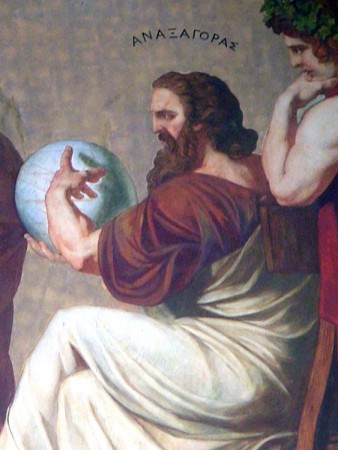This post is based on a chapter of my book “The Wraparound Universe” but is much more illustrated. The chapter is divided into 4 parts, here is the first one.
*************
That which keeps quiet beyond everything, is this in fact simply what I name Space? . . . Space! An idea! A word! A breath!
Jean Tardieu
There is no space or time given a priori; to each moment in human history, to each degree of perfection of our physical theories of the Universe, there corresponds a conception of those fundamental categories of thought known as space, time, and matter. To each new conception, our mental image of the Universe must adapt itself, and we must accept that “common sense” was found lacking. For example, if space is limited by a boundary, what is there beyond it? Nothing? It is difficult to imagine that, by voyaging sufficiently far in a given direction, one could reach a point beyond which nothing more exists, not even space. It is just as troubling to think of an infinitely large Universe. What would be the meaning of any measurable, that is to say finite, thing with respect to the infinite?

These types of questions were formulated in the sixth century BCE, in ancient Greece, where they rapidly became the object of controversy. The first schools of scholars and philosophers, called “presocratic” (although they were spread over two centuries and were quite different from each other), each attempted in their way to rationally explain the “world,” meaning the ensemble formed by the Earth and the stars, conceived as an organized system. For Anaximander, from the school of Miletus, the world where observable phenomena take place was necessarily finite. Nevertheless, it was plunged within a surrounding medium, the apeiron, corresponding to what we today consider as space. This term signifies both infinite (unlimited, eternal) and indefinite (undetermined). For his contemporary, Thales, the universal medium was made of water, and the world was a hemispheric bubble floating in the middle of this infinite liquid mass.
We meet up again with this intuitive conception of a finite material world bathing in an infinite receptacle space with other thinkers: Heraclitus, Empedocles, and especially the Stoics, who added the idea of a world in pulsation, passing through periodic phases of explosions and deflagrations.
Atomism, founded in the fifth century by Leucippus and Democritus, advocated a completely different version of cosmic infinity. It maintained that the Universe was constructed from two primordial elements: atoms and the void. Indivisible and elementary, (atomos means “that which cannot be divided”), atoms exist for all eternity, only differing in their size and shape. They are infinite in number. All bodies result from the coalescence of atoms in motion; the number of combinations being infinite, it follows that the celestial bodies are themselves infinite in number: this is the thesis of the plurality of worlds. The formation of these worlds is produced within a receptacle without bounds: the void (kenon). This “space” has no other property than being infinite and accordingly matter has no influence on it: it is absolute, given a priori.

The atomist philosophy was strongly criticized by Socrates, Plato, and Aristotle. Moreover, by affirming that the universe is not governed by gods, but by elementary matter and the void, it inevitably entered into conflict with the religious authorities. In the fourth century BCE, Anaxagoras of Clazomenae was the first scholar in history to be accused of impiety; however, defended by powerful friends, he was acquitted and was able to flee far from the hostility of Athens. Thanks to its two most illustrious spokesmen, Epicurus (341-270 BCE), who founded the first school that allowed female students and Lucretius (first century BCE), author of a magnificent cosmological poem, On the Nature of Things, atomism continued to flourish until the advent of Christianity. It was however marginalized over the course of the first centuries of the christian era, and would not again be part of mainstream science until the seventeenth century. Continue reading A Brief History of Space (1/4)
